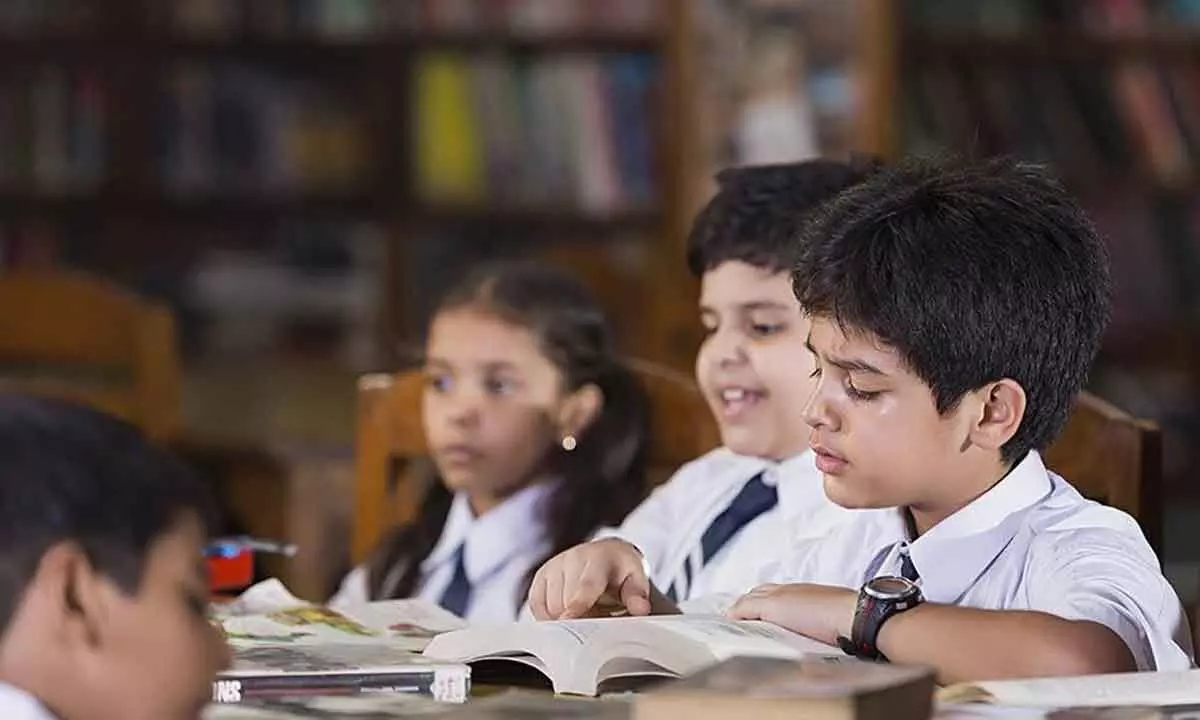Reading offers numerous benefits for a student’s overall growth

Reading, be it fiction or non-fiction, exposes students to a vast array of ideas, concepts, and information. Fiction transports readers to different worlds and cultures, fostering empathy and understanding
In the words of Louis L’Amour, “A parent or teacher has only his lifetime, a good book can teach forever.” An essential skill, reading broadens horizons, enhances critical thinking abilities, and cultivates a lifelong love for learning. Whether through fiction or non-fiction, reading offers numerous benefits that are essential for students’ overall growth. This article explores the importance of reading both fiction and non-fiction for students, highlighting the valuable skills and experiences gained through this intellectual pursuit.
Expanding Knowledge and Vocabulary:
Reading, be it fiction or non-fiction, exposes students to a vast array of ideas, concepts, and information. Fiction transports readers to different worlds and cultures, fostering empathy and understanding. It introduces them to diverse characters, perspectives, and experiences, thereby broadening their understanding of the human condition. On the other hand, non-fiction provides students with opportunities to explore real-world topics, acquire specialized knowledge, and deepen their understanding of various subjects. By reading both types of literature, students gain a comprehensive knowledge base that enriches their academic performance and their ability to engage in meaningful conversations.
Empathy and Emotional Intelligence:
Fiction has a unique power to cultivate empathy and emotional intelligence in students. By immersing themselves in the lives of fictional characters, students can understand different
emotions, motivations, and social dynamics. This exposure to various perspectives helps develop empathy, compassion, and a deeper understanding of the human experience.Non-fiction reading also plays a role in fostering empathy by exposing students to real-life stories and the experiences of others. Developing empathy and emotional intelligence through reading helps students become more socially aware, empathetic, and capable of building positive relationships.
Stress Reduction and Mental Stimulation:
Reading offers a respite from the stresses of daily life, providing a healthy escape and promoting mental well-being. Engaging in a captivating story or exploring informative texts can be an excellent way for students to relax and recharge. Reading stimulates the brain, improving memory, concentration, and cognitive abilities. Regular reading habits contribute to a student’s overall mental stimulation and well-rounded development.
In conclusion, the significance of reading for students, whether fiction or non-fiction, cannot be overstated. Encouraging students to read both types of literature equips them with valuable skills and experiences that transcend the boundaries of the classroom. By fostering a love for reading, educators and parents play a vital role in shaping well-rounded individuals capable of thriving in the ever-evolving world.








